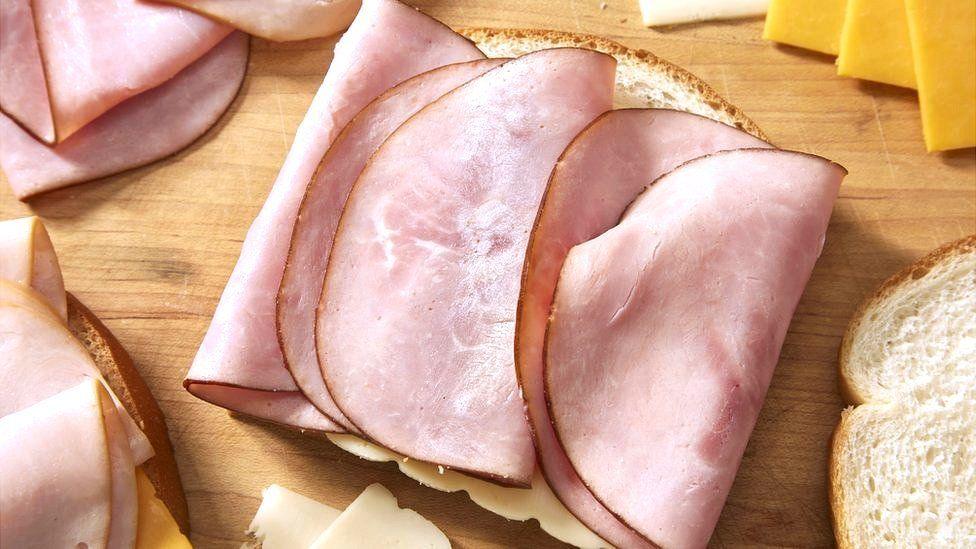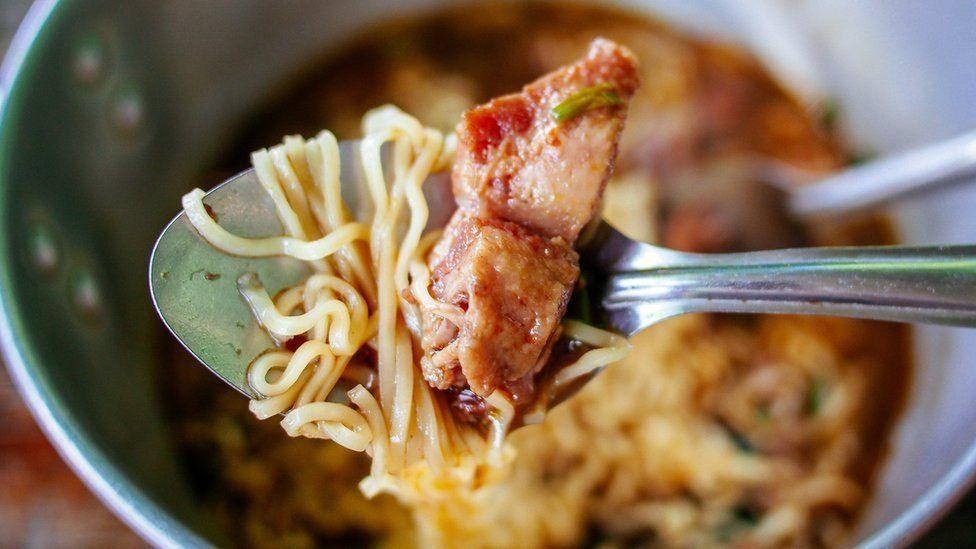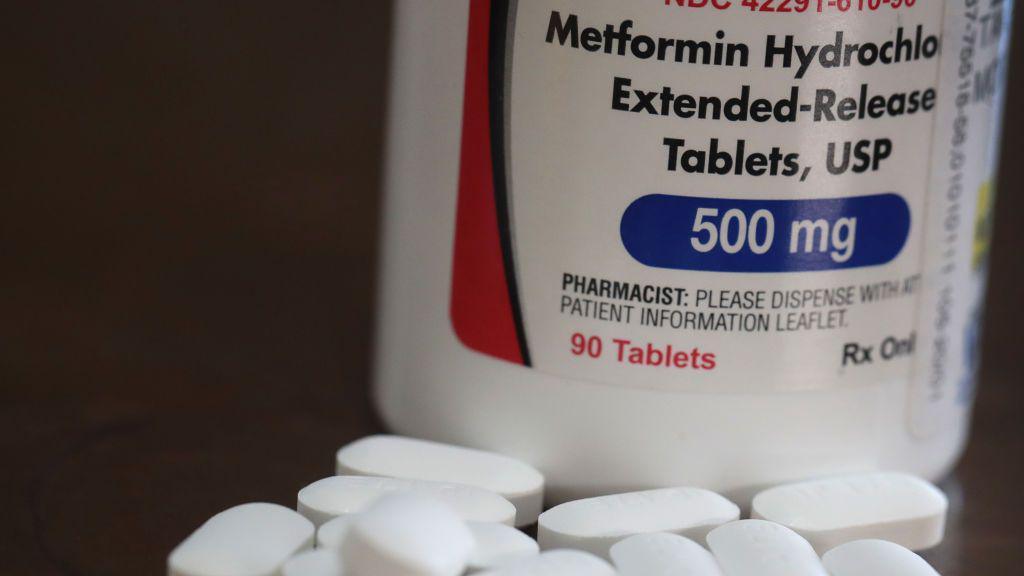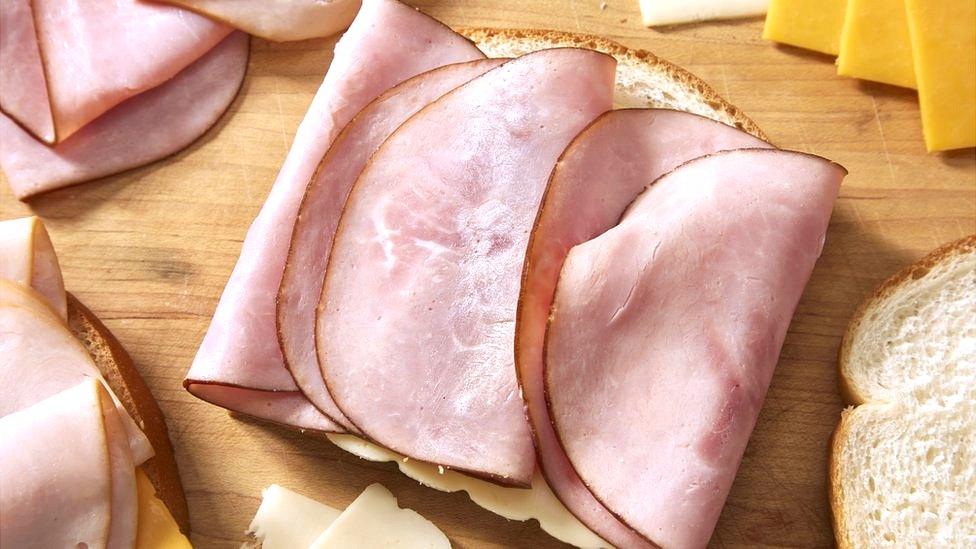Adolescents 'get most calories from processed food'

Processed meats, mass produced sliced breads and cheeses are common ultra-processed foods
- Published
Adolescents get about two-thirds of their calorie intake from highly processed foods, a new study has concluded.
Researchers at the University of Cambridge and University of Bristol looked at data from food diaries filled in by almost 3,000 young people.
They found consumption of ultra-processed foods (UPFs) was highest among those from deprived backgrounds, those of white ethnicity, and younger adolescents.
One of the study's authors, Dr Zoi Toumpakari, from Bristol, said they hoped the findings could help towards more effective policies to combat the negative effects of ultra-processed food consumption among youth and the ripple effects this has on public health.
UPFs are manufactured from industrial substances and contain additives such as preservatives, sweeteners, colourings, flavourings, and emulsifiers.
UPFs vary, but tend to have higher levels of added sugars, saturated fat and sodium, as well as less fibre, protein, and nutrients.
They have been suggested as one of the key drivers of the global rise in diseases such as obesity, type 2 diabetes, and cancer, the University of Cambridge said.

Dr Yanaina Chavez-Ugalde, from Cambridge, said adolescents' consumption of processed foods was "at a much higher level than is ideal"
Researchers for this latest study analysed data from four-day food diaries of almost 3,000 adolescents in the UK National Diet and Nutrition Survey, between 2008-09 and 2018-19.
They found that an average of 66% of adolescents' energy intake came from UPF consumption during this period, though there was a slight fall from 68% to 63% between 2008-09 and 2018-19.

Food enhancers, including monosodium glutamate (MSG), are found in ultra-processed foods, such as instant noodles
Dr Yanaina Chavez-Ugalde, from the Medical Research Council (MRC) Epidemiology Unit at the University of Cambridge, said: "Adolescents' food patterns and practices are influenced by many factors, including their home environment, the marketing they are exposed to and the influence of their friends and peers.
"But adolescence is also an important time in our lives where behaviours begin to become ingrained."
Dr Chavez-Ugalde added: "It's clear from our findings that ultra-processed foods make up the majority of adolescents' diets, and their consumption is at a much higher level than is ideal, given their potential negative health impacts."
Dr Esther van Sluijs, also from the MRC unit, said: "Ultra-processed foods offer convenient and often cheaper solutions to time- and income-poor families, but unfortunately many of these foods also offer poor nutritional value. This could be contributing to the inequalities in health we see emerging across childhood and adolescence."
Dr Zoi Toumpakari, from the Centre for Exercise, Nutrition and Health Sciences at the University of Bristol, added: "Our findings suggest that disparities in consumption of ultra-processed foods are not just down to individual choices.
"We hope this evidence can help guide policymakers in designing more effective policies to combat the negative effects of ultra-processed food consumption among youth and the ripple effects this has on public health."
The study was mainly funded by the National Institute for Health and Care Research School for Public Health Research.
Follow Cambridgeshire news on Facebook, external, Instagram, external and X, external. Got a story? Email eastofenglandnews@bbc.co.uk, external or WhatsApp us on 0800 169 1830
Related topics
- Published18 May 2024

- Published5 June 2023

- Published16 May 2019
